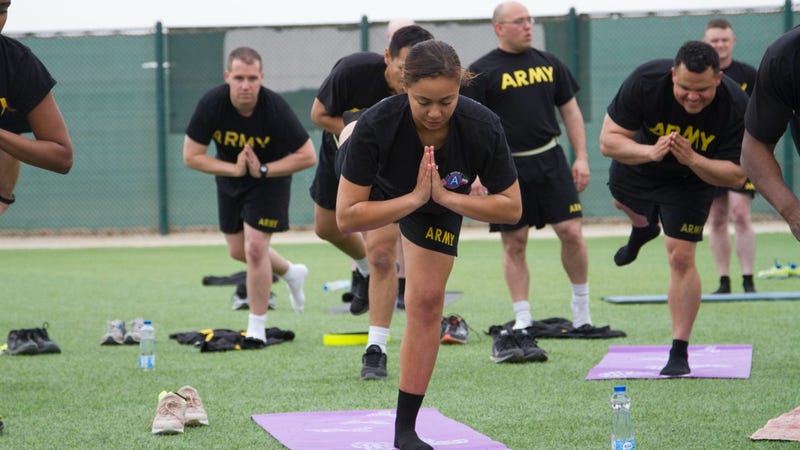
Department of Veterans Affairs investigators are researching the effectiveness of a clinical, trauma-sensitive yoga intervention to help women veterans who experienced military sexual trauma and went on to develop posttraumatic stress disorder.
According to a VA blog post, Dr. Ursula Kelly is the principal investigator for a five-year clinical trial that compared the effectiveness of Trauma Center Trauma-Sensitive Yoga (TCTSY) to cognitive processing therapy (CPT) – one of several gold-standard psychotherapies used to treat PTSD.

The trial had three aims: to reduce symptoms of PTSD, chronic pain and insomnia; to improve participants’ quality of life and social functioning; and to assess the mechanisms of action on PTSD – how yoga works to physiologically counteract the effects of PTSD.
The investigators enrolled over 200 women veterans who were seeking care for PTSD related to MST at two sites in the trial: the Atlanta VA Health Care System and VA Portland Health Care System in Oregon; the number of women who were randomized was 131.
The interim study results published in the “Journal of Alternative and Complementary Medicine,” showed that TCTSY was equivalent to CPT in relieving PTSD symptom severity in this group of women veterans.
“Both treatments resulted in clinically significant improvements in PTSD symptom severity, and in related outcomes. Yet, neither intervention was completely effective for everyone,” said Kelly in the blog post. “What this research does is give women veterans an additional treatment option, when they choose to pursue treatment for PTSD.”
Kelly is a psychiatric mental health nurse practitioner and nurse scientist at the Atlanta VA Health Care System. She also is an associate professor of nursing at Emory University in Atlanta.
The research team also found that those in the TCTSY intervention showed an earlier reduction in PTSD symptom severity than CPT, which could help to combat a high drop-out rate for trauma-focused PTSD therapy.
The veterans were randomized to two groups – the TCTSY arm received 10 weeks of 60-minute group yoga sessions. The CPT arm received 12 weeks of 90-minute CPT group therapy.

Both groups were assessed four times during the trial – at baseline, mid-point, and two weeks and three months post-treatment – using multiple psychological measures.
Veterans were also tested for biomarkers of inflammation, via blood draws, and for the neurological effects of stress using EKGs to measure heart rate variability.
“With PTSD, there is inflammation in the body along with hyperreactivity – neurological pathways become dysregulated. There is a small amount of evidence that suggests yoga may counteract these effects on the body, on the nervous and immunological systems,” said Kelly.
Click here to read more about the study.
Reach Julia LeDoux at Julia@connectingvets.com.

